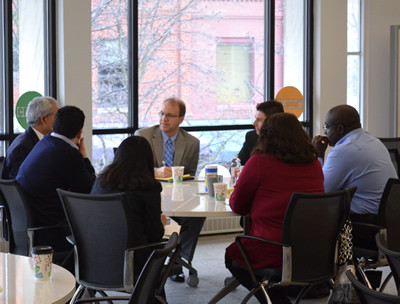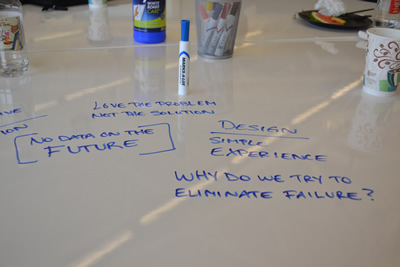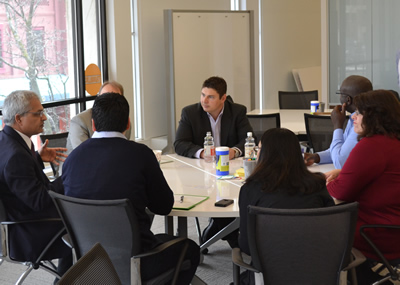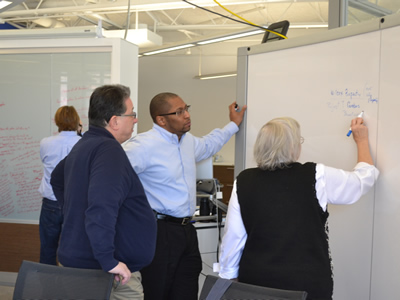
In two short years, the once-vacant lot has become a hot spot for local foodies and sparked a statewide food truck movement. Mark’s Carts now provides employment for dozens of people, and has already kick-started two brick-and-mortar restaurants as well as a seasonal beer garden. “It’s moved downtown’s center of gravity one block west,” said Hodesh, and boosted foot traffic for his happy neighbors. An unexpected bonus: the new lunch crowds cut across the city’s disparate demographics, painlessly bridging the gap between student and “townie” populations.

The goal was to help city leaders learn how to recognize the innovators in their own communities, and how to restructure their own processes in ways that will help them “connect the dots” to make these “small wins” a reality.
“When you ask what stops innovation, money isn’t one of them,” said workshop leader Chris Mueller. “It’s stuff like lengthy development time, lack of coordination, a fear of taking risks. We need to think smaller, faster, wider and let those small wins build momentum. But how do we become the host of the party and not the party itself? That’s the challenge.”

“A city has rules for a reason, but there are always ways to help them navigate the rules,” said Bahl. “We have a role as regulators but our role as government is also to facilitate. When you leverage your citizens as a resource to get things done, you make them a partner to solve the problem.”

He’s already met with officials from Jonesville Schools and the Hillsdale County ISD and is planning to present the idea to his village council soon.
“This is the kind of thing that could really start our young people on the road to success, and maybe someday they’ll look back and say this is where it all began,” said Smith. “It’s all about building relationships, and us just being the facilitator.”

We’ll also follow up with Jonesville to see if they’ve been able to make their version of Soup a win for local teens!